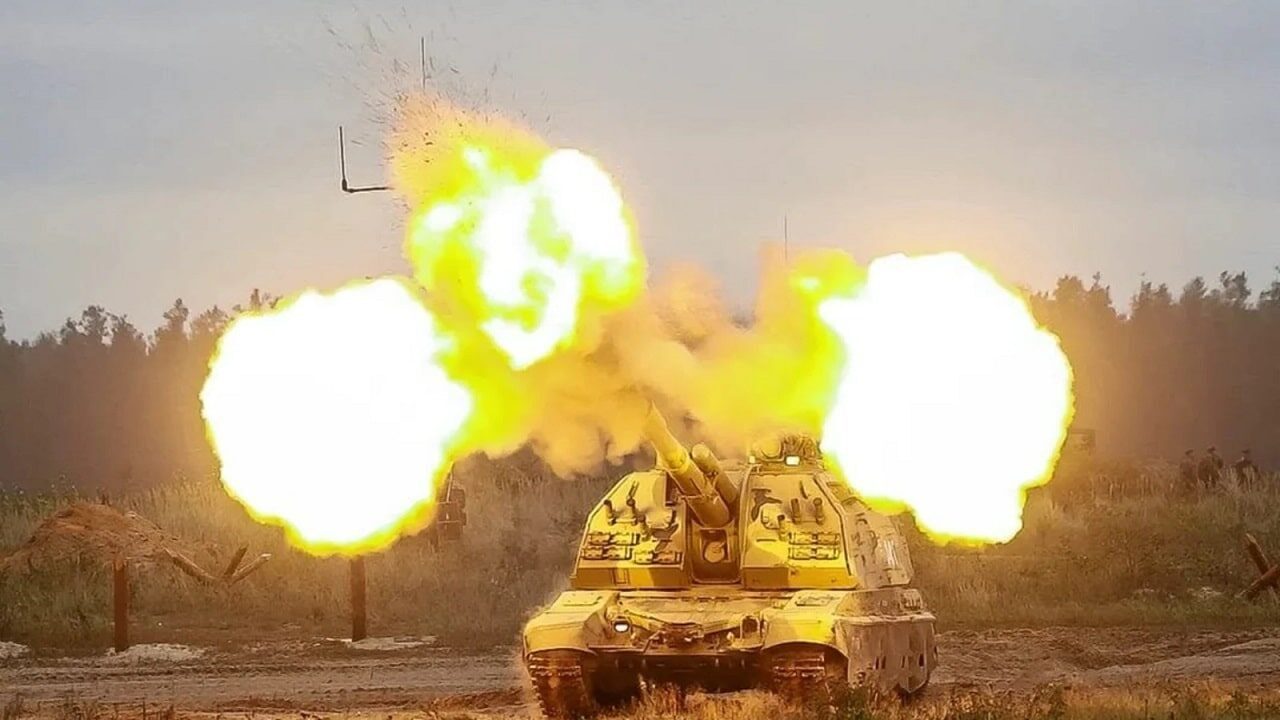An uneasy, low-grade state of financial conflict held between Russia and the West in the opening months of 2022, just as Russia began obvious preparations for a military campaign against Ukraine. Washington warned Moscow against aggressive military action and established the framework for an even more aggressive set of economic and financial sanctions against Russia’s interests. The extent of the invasion on February 2022 surprised nearly everyone and triggered this financial campaign.
(Note: This is Part II of a multi-part series. You can read Part I here. You can also read Part III here. Part IV is here with the last part here.)
Ukraine War Russian Preparations for Sanctions
Russia had prepared. In the years prior to the war Russia accumulated some $600 billion in central bank reserves, with some half of the total held in the US, the EU, the United Kingdom, and Japan. Moscow could use these reserves to intervene in currency markets and maintain the value of the ruble, or to buy weapons from foreign producers.
Russia also maintained a very conservative sovereign debt load, making these debts easier to service and making it possible to take on new debt as the circumstances of war required.
Finally, Russia had established an alternative international payment system (System for the Transfer of Financial Messages, or SPFS) which would enable its banks to continue to process payments with certain customers in the event of a cutoff from the Society for Worldwide Interbank Financial Telecommunications (SWIFT) system.
Russia’s Defensive Moves
While Moscow obviously expected a sharp, short war, it also understood that its invasion would provoke sanctions from the West. Moscow hoped that a quick victory and the prospect of high energy prices would result in the relaxation of the impending sanctions regime before the sanctions could do serious, long-term damage.
In the immediate wake of the invasion, Russia imposed capital controls to prevent further capital flight and substantially raised interest rates. This gave holders of rubles an incentive to hold onto the currency, and made it difficult to dump it even if they wished.
Russia took further steps to protect the ruble by requiring Russian exporters are required to convert 80% of their foreign exchange earnings into rubles, propping up the demand for rubles and ensuring state access to foreign currency.
Moscow judged that Russian energy was too important to Europe to sanction completely, which would leave open a door for the acquisition of more Western currency. Russia began to insist that energy customers pay for gas and oil with rubles rather than with dollars. This would force foreign customers to buy rubles, shoring up the value of the currency.
Finally, Russia made it illegal for Russian brokers to sell foreign owned Russian securities, ensuring that foreign investment capital remained in the country.
The Western Financial Campaign
The Western campaign has resulted in sanctions of number and magnitude previously unseen in world financial history. In the immediate wake of the invasion, US, EU, British, and Japanese sanctions effectively froze the $300 billion in currency reserves that Russia held abroad.
However, the sanctions allowed Russia to use its frozen foreign reserves to pay interest on its sovereign debt, avoiding a default. Thousands of individuals, businesses, and non-governmental organizations have been sanctioned by Western countries. These include individuals associated with the Russian government, as well as individuals and groups associated with President Vladimir Putin’s inner circle.
Western countries have also seized the assets of individual Russians associated with the regime, resulting in the appropriation of yachts and other luxury items owned by Russian oligarchs. A wide range of countries have joined these sanctions, including states such as Japan and South Korea which have historically shied away from such action.
At the beginning of the war several major Russian banks were cut off from the SWIFT payment system. This made it difficult for these banks to continue processing payments on an international scale. Sberbank, the largest bank, was initially excluded from the cutoff but was placed on the list following revelations of atrocities at Bucha. Due to its importance to international energy markets, Gazprombank has not been sanctioned.
The latest financial tool involves the imposition of an oil price cap, intended to make it impossible for Russia to sell oil above a set price, thus limiting the damage inflicted on the global economy by an oil shortage while at the same time reducing Russia’s ability to profit from its bad behavior. On December 4, 2022 the US and the EU agreed to a $60 price cap, well below international oil trading prices.
Economic War to Drag On
Russia and the West thus joined a titanic battle over Russia’s financial future, along with the future of the entire global financial system. The effects would be widespread both within and without Russia, although the impact would be less immediate and more complex than many had hoped.
Dr. Robert Farley has taught security and diplomacy courses at the Patterson School since 2005. He received his BS from the University of Oregon in 1997, and his Ph. D. from the University of Washington in 2004. Dr. Farley is the author of Grounded: The Case for Abolishing the United States Air Force (University Press of Kentucky, 2014), the Battleship Book (Wildside, 2016), Patents for Power: Intellectual Property Law and the Diffusion of Military Technology (University of Chicago, 2020), and most recently Waging War with Gold: National Security and the Finance Domain Across the Ages (Lynne Rienner, 2022). He has contributed extensively to a number of journals and magazines, including the National Interest, the Diplomat: APAC, World Politics Review, and the American Prospect. Dr. Farley is also a founder and senior editor of Lawyers, Guns and Money.

